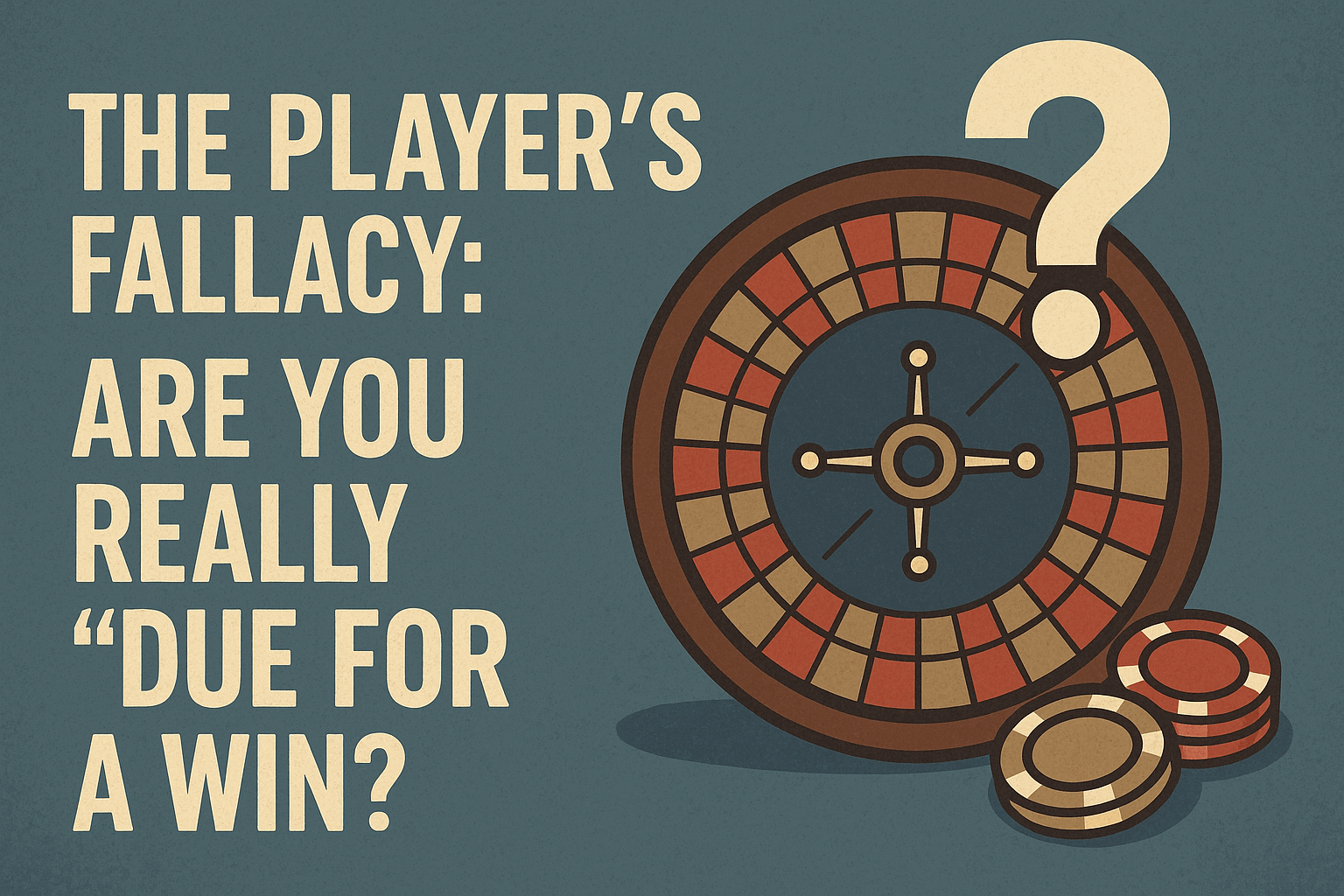Casino players tend to be superstitious. This is not something that decreases with experience: sometimes, the most superstitious players are professional gamblers. Among these beliefs, which have no basis in reality, the most common is that ‘I’m due for a win.’ Regardless of their budget, experience level, or technical knowledge, almost every player believes they deserve a win for various reasons, and some even structure their entire gaming strategy around this belief.
So, how accurate is this? Does there really come a time when you are supposed to win while playing on sites like ICE Casino? Let’s take a closer look at the answers to these questions together.
‘Due for a Win’ Explained
This is believing that the chances of an outcome that has not occurred for a long time will increase, and it occurs in every casino game. For example:
- If the last five spins in roulette resulted in black, believing that the probability of the sixth spin resulting in red has increased;
- After losing twenty times on a slot machine, thinking that the game is ready to pay out on the twenty-first spin;
- After losing five hands in blackjack, believing that a losing streak has begun and that you will only start winning after losing a few more hands.
The underlying reason behind all these examples is the belief that past results influence future outcomes. No player enjoys losing. Therefore, they need a reason to explain their losses and bad luck. Some think there is cheating in the game, while others fall into the gambler’s fallacy trap: ‘due for a win’ is actually the gambler’s fallacy.
How Do Casino Games Really Work
With a few skill-based exceptions, all casino games operate on the principle of randomness. Their mathematical foundations are designed to give the casino an advantage in the long run. In other words, outcomes are determined randomly, but this randomness is limited to a certain range, ensuring that the casino always makes a profit as long as the player continues to play. Let’s give a simple example:
- In European roulette, there are 37 numbers on the wheel (0 + 1 – 36).
- A bet on red covers a total of 18 numbers, meaning the chance of winning is 18/37 (48.64%).
- So, even though the outcome of a roulette spin is determined randomly, there is a 48.64% chance it will be red.
- However, even a player who only makes this bet will lose money in the long run, as the chance of losing the red bet is 51.36%.
There is no need for cheating in such a game. The game is already designed to give the casino an advantage in the long run. Even the bet with the highest chance of winning comes with a loss probability of over 50%. So, the outcome is determined randomly, yes, but it is a randomness with a limited range, and the casino always has an edge over the player. If you find yourself losing money as you continue to play, it is because the game is designed that way. You are not being influenced by past results – you are succumbing to the house edge. You are never ‘due to a win’ – casino games do not work like that.
Randomness Resets Each Time
If this example is not enough to convince you, let us point out that randomness resets all possibilities with each spin or round. In other words, past results cannot influence future results. Let us return to the example we gave above: we stated that the probability of winning a red bet on a single-zero roulette wheel is 48.64%. This rate remains the same with every spin and never changes. Even if you spin the roulette wheel a thousand times, the probability of the outcome being red will always be 48.64%. This is a fixed value that does not increase or decrease.
For the same reason, for example, if the result has been red for the past twenty-nine spins, it does not mean that the chance of it being black on the thirtieth spin has increased. In every casino game, the probability of winning for each outcome is predetermined – previous results cannot affect or change these values.
The truth is, the only thing that determines whether you win or lose is luck. There are no patterns in casino games, no hot or cold numbers. Therefore, there is no strategy that can guarantee a win. If you look at a roulette simulation with ten thousand spins, you may notice that some numbers appear more frequently than others. However, this is merely a statistical deviation and does not indicate a pattern. Furthermore, these results are specific to that game; you won’t see the same ones in another game.
Is There an Exception?
Technically, there are some exceptions where the principle of randomness is within a controllable limit, and all of these are card games. However, these games must meet certain conditions. For example, consider blackjack: there are variants of this game played with a single 52-card deck. In such a deck, you know in advance how many of each card there are. For instance, face cards are worth 10 points in blackjack, and there are 12 face cards in a 52-card deck. If you see 8 face cards appear during the game, you know that only 4 cards worth 10 points remain in the deck. And if one of those cards is in your hand, only 3 cards remain, and the dealer’s chance of achieving a higher point total than yours is low. By building your game strategy around this, you can actively increase your chances of winning.
However, in practice, blackjack games are played with 6-8 decks, so the likelihood of being able to use such strategies is very low. Even if you find them, you will need a certain level of experience and technical knowledge. To be realistic, for 99.9% of casino players, the only thing that determines whether they win is luck. Do not fall into the gambler’s fallacy trap: it can be dangerous and lead to bankruptcy. Play casino games just for fun and always remember that winning or losing depends only on luck.

Chase Ortiz is part of the team at PaigeSimple, where he takes care of all the advertising requests. With a sharp eye for detail, Chase makes sure every advertising opportunity is handled smoothly, helping the site grow and reach more people. His ability to manage these tasks efficiently makes him an important part of the team.

